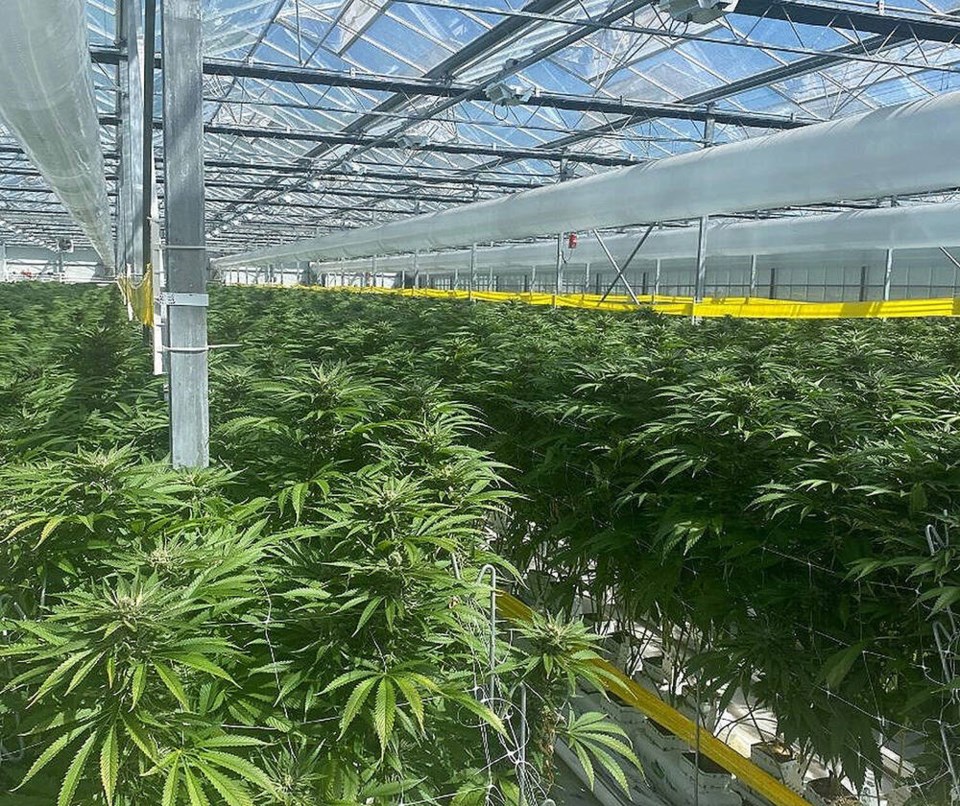A company that had a joint venture with a large-scale East Ladner greenhouse to grow cannabis has terminated its partnership, citing significant losses and the operation never being profitable.
Agra Ventures Ltd., which had a partnership with Houweling Nurseries on 64th Street in a venture called Propagation Services Canada Inc., also known as Boundary Bay Cannabis, announced on Friday it has “mutually agreed to effectively terminate and amicably exit” the joint venture by way of executing a series of agreements with its partner and related entities.
The company said it has settled its debt receivable and sold its equity interest in Boundary Bay Cannabis to its joint venture partner for an aggregate of $250,000.
Nick Kuzyk, CEO and Director of Agra Ventures, has resigned as an officer and director of the joint venture.
The company also said it has taken a significant step towards stemming its tide of financial losses and is now better positioned to preserve its current cash balance, as well as consider a strategic pivot in a more promising direction within the cannabis industry.
Agra Ventures said it has used approximately 130,000-square-feet of the 2.2 million-square-foot Delta greenhouse complex and, despite selling essentially all of the bulk cannabis that was produced within the greenhouse, and with the added assistance of a third-party wholesale cannabis brokerage firm to attract the best purchasers, high levels of supply resulting in declining market prices, combined with high operating costs, prevented the joint venture from being profitable at any time.
Since inception, Boundary Bay Cannabis “had accumulated approximately $25 million in losses and was not expected to record net income in the foreseeable future, due to unfavourable industry conditions, an onerous regulatory framework, and unattractive competitive dynamics.”
It’s been a similar story for other growers, as well as retailers, across Canada since the product was legalized in 2018, as over-supply, high costs and plummeting prices forced many to close their doors or scale back.
The Competition Bureau recently gave a series of recommendations on changes to the Cannabis Act to Health Canada.
In a statement, Nick Kuzyk said the recreational cannabis industry has not been set up for success and significant changes are needed to the Cannabis Act and other tax-related improvements.
Tasked with reviewing the current legislation, the Bureau’s recommendations include loosening the rules on how cannabis is packaged, reviewing the licensing process and regulatory compliance costs, as well as raising the amount of tetrahydrocannabinol (THC) allowed in edible products.
The president and CEO of another large-scale cannabis greenhouse operation in Delta, Pure Sunfarms, recently said it is a good start, but more is needed to help the viability of the legal cannabis industry in Canada.
“We’re happy to see the Competition Bureau make recommendations to support the competitive dynamics in our industry. It’s a good start, but without meaningful excise tax reform, we fear we won’t see the change we need to create the conditions necessary to allow our industry to thrive,” Mandesh Dosanjh told the Optimist.

